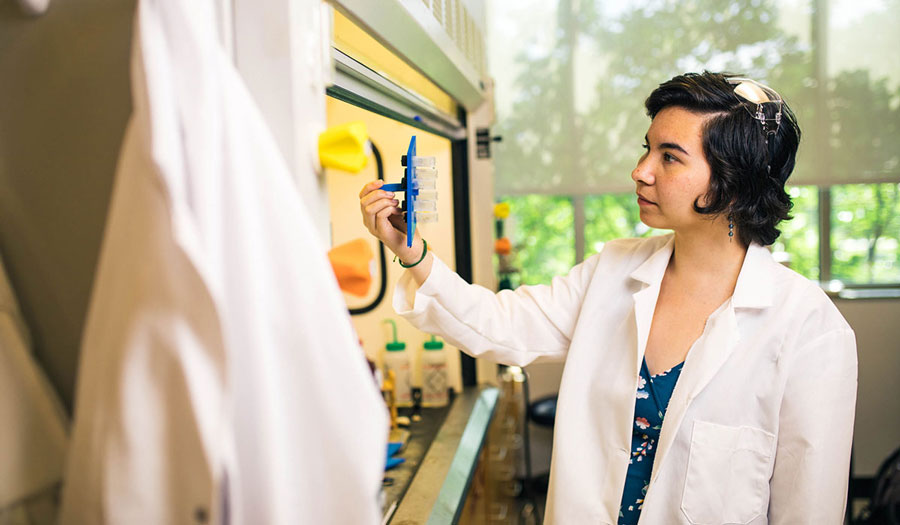

In today’s data-driven world, professionals across many fields of work must be able to analyze and interpret information, ask questions, and find creative, data-informed solutions for pressing issues. Recognizing the ever-increasing, global demand for these skills, Gettysburg College launched a data science minor in January 2020.
“The minor complements the liberal arts curriculum by developing skills in interpreting, understanding, and visualizing data, which are central skills needed in all fields with the tremendous growth in data,” said Philosophy Prof. Lisa Portmess, who supported the idea of the minor early on, alongside colleagues Environmental Studies Prof. Rud Platt and Chairperson and Prof. of Mathematics Benjamin Kennedy.
A fundamental feature of the data science minor is that it is interdisciplinary in nature, and students across all disciplines can apply the cross-cutting data analysis skills acquired within the minor program to the domain knowledge of their major field—or fields—of study.

“It will appeal to students already immersed in data science, whether in the social sciences, in computer science, in economics or in the natural sciences,” Portmess said. “It will also appeal to students who seek the technical sophistication, knowledge and career value of a degree in data science no matter what their major area of interest is. Data science makes contributions to the humanities, to law, education, business, and a myriad of other fields.”
Students who minor in data science at Gettysburg are required to take three core courses—statistics, data science programming, and applied data science—and three electives. These electives have touchpoints across many academic departments, including art and art history, biology, computer science, economics, environmental studies, mathematics, management, physics, psychology, and philosophy.

Portmess teaches an elective course for the minor that examines data through a philosophical lens, focusing on ethical issues like data privacy, algorithmic bias, informed consent, and data confidentiality. Platt also teaches several of the minor’s elective courses, and he sees a clear connection between data science and environmental studies.
“I teach courses in geographic information systems and remote sensing” Platt said. “When students use satellite imagery to analyze how the earth’s forests are changing, that’s data science. When they create maps and visualizations to clearly and compellingly communicate their findings, that’s also data science.”
Both Portmess and Platt are eager to continue helping students use data science to draw cross-disciplinary connections, and they expect that the minor will expand its reach as students’ interest in the subject—and what it can teach them about the world—grows.
“I meet so many impressive students here, but the ones that impress me the most are those who, by the time they graduate, have developed real passion for and expertise in a certain topic,” Kennedy said. “Familiarity with data science affords students the chance to deepen their expertise in any topic and enhance their intellectual contributions to the world.”
By Molly Foster and Kimberly Monitto ’20
Posted: 05/04/20


